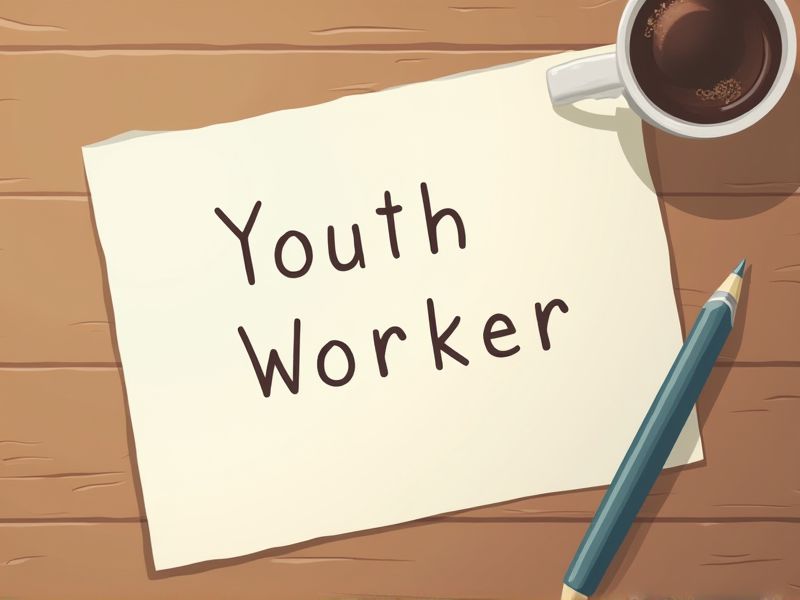
Youth workers deal with a range of complex issues that require specialized knowledge and skills, making certifications essential for ensuring effective support. Specific certifications provide the theoretical framework and practical skills necessary to address diverse youth needs. Additionally, they enhance a youth worker's credibility and demonstrate their commitment to professional development. Key certifications necessary for a youth worker include those in youth mental health first aid and child protection.
Youth Work Certificate/Diploma
A Youth Work Certificate/Diploma provides essential training in child and adolescent development, equipping professionals with the necessary skills to support youth effectively. It ensures youth workers meet industry standards, enhancing their credibility and professional acceptance. Formal qualifications increase employability, opening up more diverse job opportunities in community services and education sectors. Presence of certified qualifications facilitates better safety and ethical standards, as workers are educated in handling sensitive situations responsibly.
First Aid Certification
Youth workers often engage with individuals who are more prone to accidents and health issues. First aid certification equips them with essential skills to effectively respond to emergencies, minimizing potential harm. It also boosts parents' confidence in the safety and well-being of their children under the worker's care. Certification ensures youth workers comply with regulations and enhances their professional credibility.
CPR Certification
CPR certification equips youth workers with the skills to respond promptly to cardiac emergencies, potentially saving lives. When youth workers are trained in CPR, they provide a safer environment for the children and teens they oversee. Being CPR certified can reduce the response time in emergencies, minimizing the risk of severe outcomes. Many organizations require CPR certification as a standard to ensure compliance with safety protocols and reduce liability risks.
Child Safeguarding Certification
Child Safeguarding Certification equips youth workers with the necessary knowledge to identify and respond to potential signs of abuse or neglect. It establishes a standard of behavior and responsibility that helps ensure the safety and well-being of children in their care. Certification can build trust with parents and guardians, demonstrating a commitment to creating a secure environment. It aligns with legal requirements and industry standards, reducing the risk of liability for organizations employing youth workers.
Mental Health First Aid Certification
Mental health first aid certification equips youth workers with the skills to identify signs of mental distress in young people. By understanding mental health issues, they can intervene early, providing timely support and reducing the risk of escalation. Certification fosters confidence, enabling youth workers to communicate effectively and empathetically with those in need. It enhances the overall safety and well-being of the youth under their care, promoting a healthier community environment.
Conflict Resolution Training Certification
Youth workers often encounter diverse groups of young people, which can lead to conflicts arising from differing perspectives. A Conflict Resolution Training Certification provides them with tools to manage disagreements effectively and constructively. This training enhances the ability to foster a supportive environment, crucial for youth development. By possessing these skills, youth workers can guide young individuals towards positive communication and problem-solving strategies.
Crisis Intervention Certification
Crisis intervention certification equips youth workers with essential skills to effectively manage and de-escalate volatile situations, reducing potential harm. This training improves their ability to recognize early signs of mental health issues or distress, promoting timely support and intervention. Certified workers are better prepared to adhere to legal and ethical standards, safeguarding both themselves and the youths they serve. Enhanced trust and credibility result from their demonstrated commitment to professional competence and youth safety.
Cultural Competency Certification
Cultural competency certification ensures youth workers understand and effectively engage with diverse backgrounds, enhancing trust and communication. This certification equips them with the skills to identify and reduce potential biases, contributing to a more inclusive environment. Data shows culturally competent workers can better address the unique needs of youth from minority communities, fostering positive outcomes. As diversity within communities increases, youth workers require structured training to respond appropriately to cultural nuances.
Leadership Development Certification
Leadership Development Certification equips youth workers with essential skills to effectively guide and inspire young people. It provides them with validated tools and strategies to address challenges faced by youth, enhancing their support systems. Certification also instills confidence in stakeholders, ensuring youth programs are led by competent individuals. Furthermore, it creates opportunities for career advancement and professional growth in the field of youth work.
Community Engagement Certification
Community engagement certification equips youth workers with the skills and knowledge required to effectively connect with diverse communities. This certification enhances their ability to design and implement programs that accurately address community needs. With certified expertise, youth workers are more trusted by community members, facilitating better collaboration. Offering a standardized approach, the certification ensures consistency in practices across various youth-focused initiatives.
Summary
By obtaining certifications, you enhance your credibility and expertise in youth work. This often leads to increased job opportunities and potential career advancements. Certified youth workers tend to foster greater trust with both employers and the communities they serve. Consequently, you may experience improved outcomes in your youth programs due to enhanced skills and knowledge.
